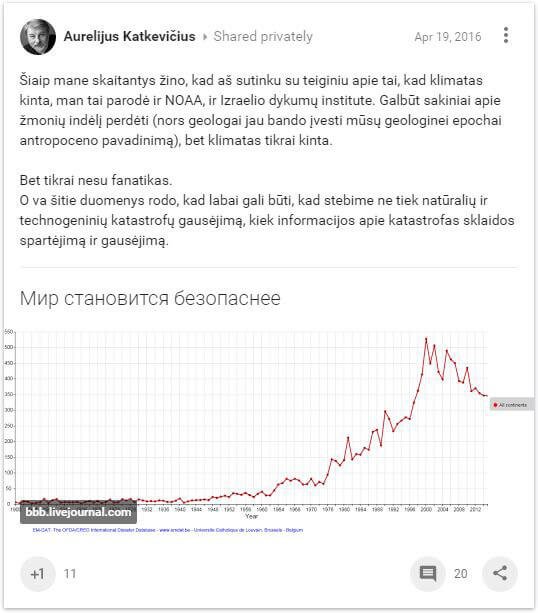Aurelijus Katkevičius: journalist, editor of "Verslo Klasse" magazine and one of the first public relations specialists in Lithuania. Today we talk to him!
This author is weird. Not because he has any unpleasant flaws, but because he doesn't spread his thoughts anywhere. When other authors write on Facebook, Aurelius writes magazines.
"Business class", "Illustrated science", "Illustrated history" and in the future they are thinking of publishing another one about modern culture. I'm sure you've already seen the first three on the newsstands.
A. Katkevičius is also a multilingual public relations specialist. And today it fell into Debesyla's hands. Let's talk to him.

Photo by Lukas Balandis.
📰 First of all, I want to ask you, as the editor of "Business Class", what kind of people do you find it easy and good to communicate with?
Hard question. Maybe we should start with this: each person has specific linguistic clothes. A lawyer, a businessman, a computer scientist - everyone has their own jargon.
The most difficult thing for me is to communicate with managers of various institutions and organizations, and they often have a linguistic shell - learned, trained sentences. It is easiest with those who do not have that linguistic garment. Which are for themselves, for themselves and for themselves.
📰 Sometimes people who do not have experience hesitate whether they have chosen the right path. What advice would you give them?
Vocation is now becoming very dynamic. Because the times are terribly dynamic. Probably, the knowledge of any technical science, their entire complex or code, now becomes obsolete in 2-3 years. The same is happening in the humanities, maybe not as fast, but fast enough.
Everything changes. Therefore, living by clinging to your own invented goal, suggested by your parents or environment, does not make any sense these days. The only goal and the only motto in this ever-changing world could be: to be as flexible as possible and to learn throughout life.
📰 And who do you learn from?
I am sitting on a huge "pipe" of information.
📰 How do you not get lost in that information? The traffic is huge.
I don't know. I've been living like this since 1986 (that's 30 years). It's the same if we ask a centipede - how do you walk? Or Benedikta Vanago - how do you drive? Once you get used to it, it just works.
📰 If a person decided to follow in your footsteps and become a journalist, what would you advise?
I am convinced that there is no such profession as a journalist. This is a craft. The profession is completely different. Profession is systematic knowledge about the structure of the universe and society - understanding of the world. And the most important thing is the acquisition of discipline, skills, something serious.
I would recommend everyone to finish dogmatic theology, quantum physics, classical philology. What gives basic knowledge about the development of the world and civilization.
📰 And do we need basic knowledge to have various information?
Not much knowledge is required. I am talking about the principles of scientific thinking. Principles of scientific - skeptical, but curious and optimistic - thinking. One should acquire them. They are the foundation. Everything else is easily arranged.
📰 You once said that the world is not ruled by money, but by stories. How to tell that good story?
I have been teaching the answers to this question to students for about a semester. It is impossible to describe it in a few sentences.
📰 And what would be the basic principles?
Don't be afraid of yourself. Each person is unique - a story happens when it is your story. Your first question is about exactly that.
As a human being, as an individual who sees the world as only he sees it, I have tools - language - with which I can communicate my unique vision and thinking - and then the story happens. Only then does a person break out of those learned phrases, jargons that hide a lot.
📰 I want to ask you one more question - sometimes robots write articles instead of journalists. How to be a special person who cannot be replaced by technology?
Just last week, Google's computer AlfaGo won against the go world champion from South Korea, Lee Se-dol. Go is an old Chinese game and until recently it was thought that a computer could not beat a human there because the game has more combinations than there are atoms in the universe.
For more than ten years, programs have been creating reports and writing texts that reach us through the news stream.
They can be ordered: first it was done with sports, then in the field of economics, criminals and so on. There are certain standard algorithms, standard situations and elements - there is always a dead body, there is always a killer, the value of shares falls, the value of shares rises, a basketball player makes a three-pointer...
But there are two things that artificial intelligence will not be able to do: First, he will not have the unique ability to see the situation and narrate the point of view in a unique language.
However, our brains have more neuron connections, so our fields of vision and associations are probably wider. This is one of the reasons why our profession - the craft of telling stories - will not disappear.
And the second thing is that that the information overload in today's world is enormous and for this reason many people sink into a kind of information indifference.
Knowledge falls from everywhere and there is a lot of it. They are mostly emotional, but in the end it doesn't excite, irritate and learn anything. Information overload becomes white noise.

Photo of the "Staircase Gallery".
Therefore, the second function is important: Personalize the flow of knowledge according to a certain customer: what he needs and how he would like to see that knowledge.
Here's another future perspective for our craft - becoming information disc jockeys - picking out what a particular person needs from that massive stream of information.
📰 Is it similar to social networks where you choose what information you want to see?
Social networks are a very interesting, self-organizing and self-learning model that works on the principle of neural networks. Artificial intelligence learns a lot from social networks. The way they work is very interesting and promising.
📰 You are registered in some social networks - what do they give you?
Linkedin is essentially a job search network, and I stopped looking for it ten years ago. For Google+, it was a competitor to Facebook and was interesting to try. I'm not signed up for Facebook, but I follow it. 1
Google+ for me testing ground, where you can test, check one other thought or idea. The advantage is that it is not a product known to the masses, so there are far fewer comments about children being kidnapped on the Acropolis.
For example, if you bring up a certain idea about self-regulation mechanisms in society or a comment about how the Iran contract will affect the fluctuation of oil prices, then people actually come to discuss the oil market, not to say that you are an agent of Washington or Moscow.

Second thing - it is a source of ideas. I see a lot of information flows through which ideas from different fields are swimming. I get a lot of different information.
And the third thing is I find the author there. There are a lot of people writing there. Compared to how I worked in literature and art thirty years ago, this is a huge advance and advantage.
Now I see an insane amount of potential writers every day who have something interesting to say about a lot of things. And I have the opportunity to see their history, past essays and how they write, what they can tell. The available flow and choice space is significantly larger.
And one of my duties as an editor is to find authors, so Google+ is extremely convenient for work.
📰 I also want to ask you about a specific area - public speaking. It is supposed to be only for politicians and company executives. But is it true?
We have a huge problem with this, as with writing. As Lithuanians, we probably do not know how to be public because of some characteristics of our mentality. And this is probably one of the biggest problems of our psychotype.
I don't know why public communication has been like another language for quite some time.
I would introduce rhetoric classes and public debates in schools. Also writing - not just as it is now. A person is what he says.
What he is able to convey verbally and in writing is what sets him apart from other creatures.
📰 Thanks Aurelius!
I liked! I learned some interesting things about Aurelius and got some new ideas. But what do you think?
Share in the comments below.
– Dalia Sipavičiūtė
This interview was recorded in early 2016. Currently (at the beginning of 2020), the Google+ network is already closed, and Aurelijus Katkevičius has a personal account on the Facebook network.↩

As Lithuanians, we probably do not know how to be public because of some characteristics of our mentality. And this is probably one of the biggest problems of our psychotype.
Finally!
I understood mentality, as such a word, in its true inner sense after learning a foreign language. I just made my own translation: "mental"-spiritual (Spanish club)", aunt"(Spanish club)-breast. The spiritual breasts of our nation. I agree, it's true, public communication was a different language for quite a long time. Maybe because of a different level of consciousness? Principles of scientific thinking. Great! It's only for the elite? I agree about the disciplines (dogmatic theology, quantum physics, philology). Well, after about 10 years, when robots, cyborgs will increasingly dominate the service sector, what will happen to them without scientific thinking?
Of course, talk to the Hawk.
Well, if the chess computer defeated Kasparov, then maybe that artificial intelligence is really capable of a lot. A lot, but is it all? For some reason, I had the following thought: how does that artificial intelligence do with emotion? Can you control them, cause them, change them one by one? To be honest, my knowledge in this area is, you could say, zero. It is interesting to hear the opinion of those who know more about this.
And he's pretty darn good with emotions already. First of all, it has been reading human emotions quite accurately for several years (at least from the face), and it is not difficult to cause them using the same things that people use to cause emotions in people. For example, in words: Kremlin bots are interesting because the automatically written texts are not random, they are selected to cross over ideas and feelings. 🙂
And to feel emotions - you will feel that too. When you need it. In reality, emotions are nothing more than a small calculation. Only we as humans do not feel that, for example, during anger, a whole bunch of chemicals are released to overcome something that caused the anger. Because it's normal for us. And the computer - you have to create everything from the ground up with steps and programs. :')
Anyway, here I think it is a good experience to acquire the basics of programming. A few hours helps you understand much better how computers work and why. And then there are only steps left...
I personally recommend: http://waitbutwhy.com/2015/01/artificial-intelligence-revolution-1.html
(And yes, the author's texts are even longer than mine. And I love it.)